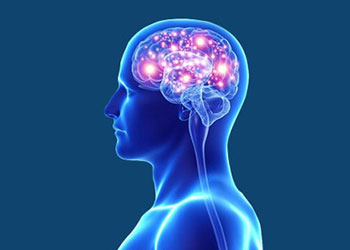Common Symptoms:
Symptoms vary depending on the affected part of the nervous system. Common signs include:
-
Persistent or sudden headaches
-
Memory loss or confusion
-
Difficulty speaking or understanding speech
-
Dizziness or loss of balance
-
Seizures or convulsions
-
Numbness, tingling, or muscle weakness
-
Tremors, involuntary movements, or coordination issues
-
Vision problems or double vision
-
Behavioral or mood changes
Causes of Neurological Conditions:
Neurological disorders can be caused by:
-
Stroke or poor blood flow to the brain
-
Infections such as meningitis or encephalitis
-
Trauma or injury to the brain or spinal cord
-
Genetic or hereditary factors
-
Autoimmune disorders (e.g., multiple sclerosis)
-
Tumors or abnormal growths
-
Metabolic or hormonal imbalances
-
Degenerative diseases like Alzheimer’s or Parkinson’s
Treatment Approach:
Treatment is tailored to the specific neurological condition and may include:
-
Medication Therapy: To control symptoms, slow disease progression, and prevent complications (e.g., anti-seizure drugs, anti-parkinsonian drugs, pain relievers).
-
Lifestyle Modifications: Diet, physical therapy, stress management, and sleep hygiene often form a critical part of recovery.
-
Neurological Rehabilitation: Physical, occupational, and speech therapy to regain function and independence.
-
Advanced Diagnostics & Monitoring: MRI, CT scans, EEG, EMG, and nerve conduction studies help accurately diagnose and monitor conditions.
-
Referral to Specialists: When necessary, patients are coordinated with neurologists, neurosurgeons, psychiatrists, or pain specialists for multidisciplinary care.
-
Ongoing Monitoring & Support: Long-term care is often required for chronic conditions, with regular check-ups to adjust treatment as needed.
Prevention & Early Detection:
While not all neurological conditions can be prevented, early detection and healthy lifestyle habits can greatly reduce risk and severity. Preventive steps include:
-
Managing blood pressure, blood sugar, and cholesterol
-
Avoiding smoking and excessive alcohol use
-
Regular physical activity and brain exercises
-
Protecting the head from injury (helmets, seatbelts)
-
Timely vaccinations and infection control
-
Recognizing early warning signs and seeking medical help promptly

